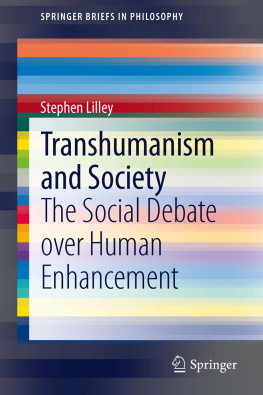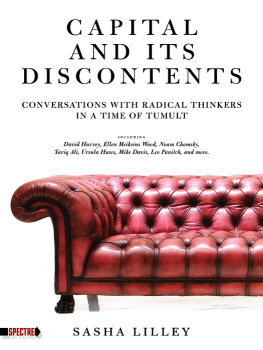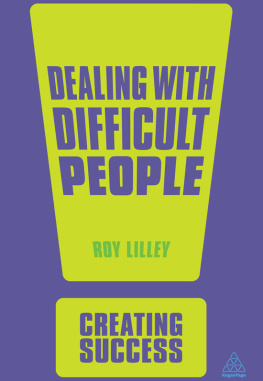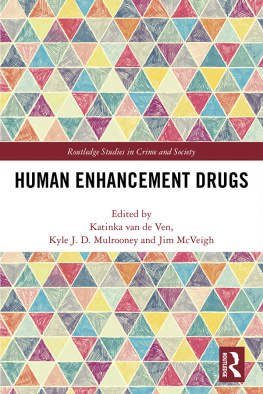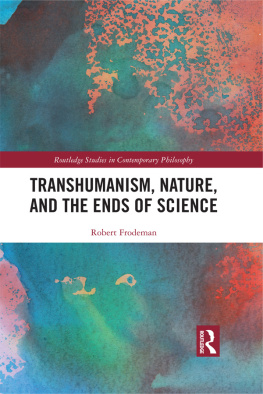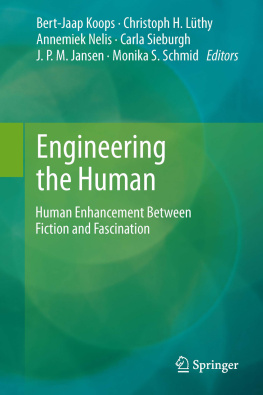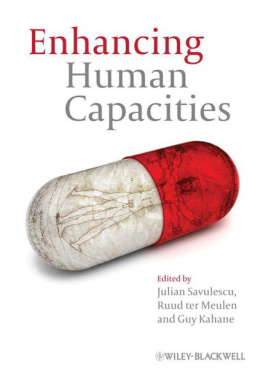Stephen Lilley SpringerBriefs in Philosophy Transhumanism and Society 2013 The Social Debate over Human Enhancement 10.1007/978-94-007-4981-8_1 The Author(s) 2013
1. Introduction to the Transhumanity Debate
In 2006 the Edge Foundation invited over one hundred distinguished scholars to respond to this prompt suggested by Steven Pinker: The history of science is replete with discoveries that were considered socially, morally, or emotionally dangerous in their time; the Copernican and Darwinian revolutions are the most obvious. What is your dangerous idea? (Edge 2006) The responses at www.edge.org are fascinating but let us consider for the moment that there are dangerous ideas and expand the set to include any ideas, not just from science, that break out and threaten established ways of thought and social norms. In their time, monotheism, predestination, manifest destiny, Nietzsches overman, racial purity, and social darwinism did just that. String together a few dangerous ideas and you have a dangerous ideology, for example, the last few concepts were key components of Nazism. The political philosophy behind democracy brings together the dangerous ideas of equality, liberty, and universal rights.
The ideologies mentioned above, especially discredited Nazism, no longer have the element of surprise, their novelty mitigated by exposure and time. So, what dangerous ideologies today have the power to shock? I believe that transhumanism fits the bill. The singularity, natural-born cyborgs, and proactionary principle (all described later) are provocative ideas and the clarion call to use technologies to alter the human species makes transhumanism most daring. Opponents go so far as to claim that this ideology poses a grave threat to humanity.
The first article of the Transhumanist Declaration at the Humanity+ website [the doing-business-as name for the World Transhumanist Association (WTA)] holds that Humanity stands to be profoundly affected by science and technology in the future. We envision the possibility of broadening human potential by overcoming aging, cognitive shortcomings, involuntary suffering, and our confinement to planet Earth. (Humanity+ 2010) In a previous statement the WTA declared: We support the development of access to new technologies that enable everyone to enjoy better minds, better bodies and better lives . In other words, we want people to be better than well (World Transhumanist Association 2008, original emphasis).
The transhumanists offer a hopeful vision at a time when things could be better, should be better. We face interminable war, food and water shortages, global warming, economic instability, senseless violence, and many of us have little faith that current social institutions can handle these problems. Contrast the daily feed of bad news with upbeat headlines about promising breakthroughs from science and medicine, for example, Newly Created Microbe Produces Cellulose and Sugars for Biofuels, Gene Therapy Restores Some Vision In Nearly Blind Patients, and Microchip That Can Detect Type and Severity of Cancer Created. I readily admit that after hearing about another bombing, mass shooting, casualties from the drug war, etc., etc., the technology stories give me a lift. Rather than showing humanity for being stupid, destructive, and juvenile, these stories provide examples of intelligence, creativity, and maturity. Transhumanists assert that this is what we do best as a species. Why shouldnt we embrace our strengths and use technologies to uplift the human race?
It is a seductive message, nevertheless critics counter that after the twentieth century with its gas chambers, chemical and nuclear warfare, and environmental pollution, no responsible person should accept without question the belief that we will find deliverance through science and technology. Corporations and the military, mainly interested in profit and weapons, sponsor much research and development. Technological disasters occur and fixes backfire. Why place humanity in greater jeopardy? I believe that we must be as willing to face such doubts as we would embrace hope, and a good place to start is the transhumanity debate.
Presenting the Transhumanity Debate
I will be using the label, transhumanists, as a catchall for a variety of notable figures, many of whom accept this descriptor and all of whom advocate human enhancement. Conservationists is the term that I have chosen for their opponents because of their stand to conserve human nature and institutions. One of the more fascinating aspects of this social debate is the diversity within this opposition camp. Social conservatives, theologians, secular humanists, and environmentalists have found common cause in their preference for conservation. For instance Bill McKibben, a noted environmentalist, admires humans for their natural endowments and does not wish to see us compromised by artificial enhancements. Others want to conserve a time-honored way of life, a traditional understanding of Imago Dei (image of God in human), or the liberal state.
Around the turn of the millennium, influential scholars representing faith and secular traditions began to single out transhumanists for criticism. Ray Kurzweil, multi-millionaire inventor and entrepreneur and tireless promoter of human transcendence, received the most attention. He has written best sellers on the topic and in 2009 released the movie, The Singularity Is Near . He is the Chancellor of the Singularity Institute. Its mission is to prepare leaders to understand and manage advancing technologies for the greater good. Kurzweil intends to live long enough to reach the point when aging and disease will be conquered and to this end he partnered with Terry Grossman, M.D., to develop an anti-aging regimen of a specialized diet, supplementals, and chemical i.v. treatments. They have marketed a line of longevity products and have written a health book, Transcend: Nine Steps to Living Well Forever (2009).
Daniel Lyons (2009) begins his Newsweek article on Ray Kurzweil, I, Robot: One Mans Quest to Become a Computer , by citing Kurzweils willingness to become a cyborg and ends the article this way:
He has no doubt. None. He is utterly, completely, 100 percent sure that he is going to live forever. He will be reunited with his beloved father, and they will become immortal and spend eternity together. Nothing can talk him out of it. And that, at the end of the day, may be the scariest, or saddest, thing of all (73).
What I did not find in Lyons article was an appreciation for the controversy that with great energy, determination, and skill Kurzweil has helped create. This is the problem when too much attention is placed on personalities. As I see it, this was a missed opportunity. Science and technology controversies abound but often they entail disputes over specific methods, facts, or effects. Not so the transhumanity debate it is expansive both with regard to the wide range of contested issues and the overt discussion of values and beliefs. Even though the central question to this debate is whether to accept or reject technological enhancement, the contestants address this question according to their respective metanarrative of what we are and what we should become and of what constitutes the greater good. They argue about human nature, ethics, and the proper role of government. The culture wars loom and rifts are evident between secular and religious and between proponents and opponents of global capitalism. It is an interesting story!

